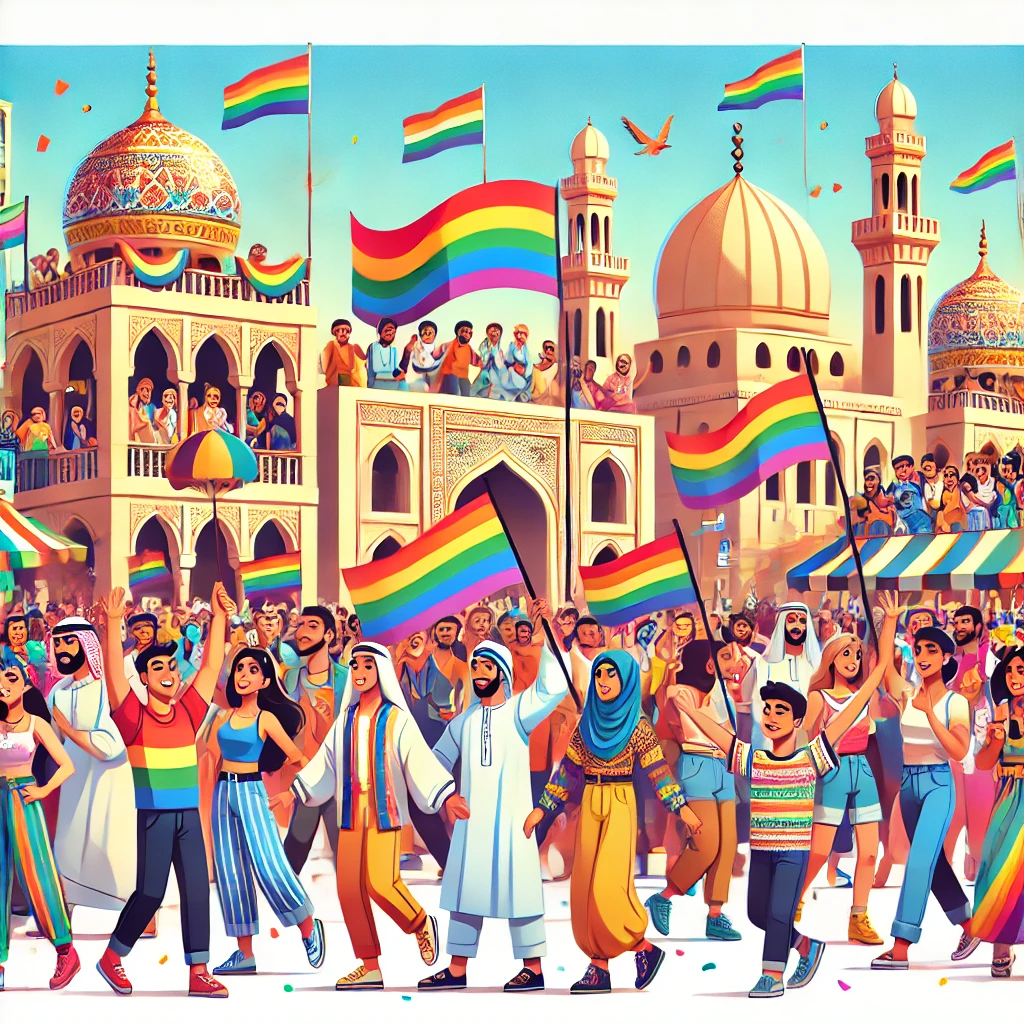
In today’s interconnected world, many social justice movements rally together to support causes that align with their values. However, the growing support from some LGBTI+ groups for Palestine, especially in the context of Hamas, presents a striking contradiction. While these groups may align with the broader Palestinian struggle for human rights, the reality on the ground is far more complex, particularly when viewed through the lens of LGBTI+ rights.
The Dilemma of Intersectional Activism
Hamas, the governing authority in Gaza, enforces strict Islamic law, under which homosexuality is illegal and punishable by severe penalties, including imprisonment or worse. In Palestinian society, particularly in Gaza, LGBTI+ individuals face social ostracism, persecution, and, in extreme cases, violence. Public expressions of LGBTI+ identity are not only frowned upon but can also be life-threatening. This starkly contrasts with the values of freedom, equality, and inclusion that the global LGBTI+ community advocates for.
Yet, in the broader global conversation, support for Palestine often stems from a sense of solidarity with oppressed populations. Many LGBTI+ activists and groups champion the Palestinian cause as part of a larger struggle against what they perceive as human rights abuses by Israel, aligning with broader anti-colonial and anti-imperial narratives. In these movements, Palestine symbolizes the fight against injustice and inequality, leading to advocacy that overlooks or downplays the local realities of LGBTI+ persecution under Hamas governance.
A Difficult Balance
The contradiction here is glaring: how can LGBTI+ groups stand in solidarity with a cause tied to leadership that actively opposes their identity and existence? Some argue that their support is not for Hamas itself but for the broader Palestinian population, many of whom also face persecution, occupation, and economic hardship. They see their activism as advocating for human rights on a larger scale, separating it from the specific policies of Hamas or the Palestinian Authority.
However, this approach can seem contradictory or hypocritical, as the LGBTI+ community champions global human rights while supporting a regime that violates those very rights. This tension exemplifies the challenge of intersectional activism, where different causes intersect but don’t always align perfectly with the core values of all parties involved.
The Apparent Oppressor and LGBTI+ Rights
Adding to the contradiction is the fact that the apparent oppressor, Israel, is notably progressive when it comes to LGBTI+ rights. Israel is one of the few countries in the Middle East where homosexuality is legal and LGBTI+ individuals are protected under anti-discrimination laws. Tel Aviv, in particular, is recognized globally as one of the most LGBTI+-friendly cities, hosting large Pride events and fostering a culture of inclusion. This creates a paradox: some LGBTI+ activists align with a cause that opposes Israel, a nation that upholds many of the values they fight for, while defending a region where their identities are not only unrecognized but criminalized.
A Path Forward
In supporting Palestine, many LGBTI+ groups aim to focus on humanitarian issues while hoping for a future where both Palestinian self-determination and LGBTI+ rights can coexist. However, for a truly balanced and principled stand, these movements must confront the inherent contradictions within their advocacy and engage with the difficult realities of supporting causes tied to groups with fundamentally opposing values.
This issue raises larger questions about global activism: Can one support a cause without endorsing all aspects of it? How can movements remain true to their values when those they support do not share them?
These are essential questions as the global fight for human rights continues to evolve, and they highlight the contradictions at the heart of modern activism.